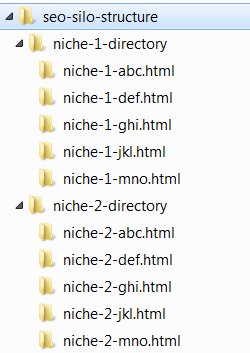Duplicate Content and Canonical URLs WordPress SEO Tutorial updated February 2014 WordPress has the potential to mess up your websites SEO by generating archive pages (home archives, monthly archives, daily calendar archives, categories, tags and search results) with duplicate content. There’s also other ways WordPress can generate duplicate content, but in recent versions of WordPress those have been fixed via canonical URLs (as long as your theme/plugins don’t break the WordPress core fix). For Stallion Theme users everything below is dealt with by Stallion Responsive other than over using content on multiple categories/tags which is a user issue (see later). WordPress SEO Canonical URLs on Paged Comments Before dealing with duplicate content on archive pages let’s check your WordPress theme […]
Continue Reading WordPress SEO Duplicate Content


Stallion Responsive Theme Paged Comments Advanced SEO
Been working on new features for Stallion for well over a year, but as explained in other comments for health reasons had to put working on Stallion on hold. Have been able to spend about a week working on Stallion and have added some awesome new features, one I’ve almost finished is really cool.
For those with posts/pages with a lot of comments (like this Page you are reading now, over 200 comments) you have to spread them over Paged Comments (a core WordPress setting). This Page currently has 10 Paged Comments.
There are SEO negatives and benefits to this setup, since I use the Stallion SEO Super Comments feature many of the comments generate a Post like page with the comments content and they need at least one link to be indexed and the Paged Comments are indexed by Google etc… so they supply those links. Having Paged Comments means the comment content you and your visitors generate can be ‘archived’ over multiple Paged comments pages, like I said this one is broken over 10 pages, these can potentially generate their own traffic.
Bad news is at the top of all the Paged comments is the entire contents of the main post which is a potential duplicate content issue, for this Page you are on now it’s not such a problem since I only added a couple of lines of text, so the 10 Paged Comments are 95% unique content (it’s almost all my and my visitors comment text), but for most scenarios that can be a lot of content duplicated over and over again: I have a jokes site with jokes with thousands of comments split over a 100+ paged comments pages each with the entire jokes contents copied over and over again (far from ideal!). What’s also bad SEO news the title elements (title tags) are all the same, so on my jokes site I have hundreds of indexed paged comments with the same title tag, again far from SEO ideal (ideal is all pages have unique title tags).
You’ll find many SEOs and WordPress SEO Plugin developers advise noindexing the paged comments (or not using them if you don’t have too many comments). The All In One SEO Plugin for example adds a canonical URL to the main post on all Paged Comments pages so only the main post is indexed. I don’t like this option and the next release of Stallion (Stallion 8) has solved this issue.
1st The paged comments pages (pages 2, 3, 4 etc…) can be set to show an excerpt of the main post so only the main post loads the entire posts content: the paged comments are a bit like comment archives with a snippet of the original post and the majority of the content being unique comments.
2nd If you set the Stallion All In One SEO Title Tag and the four Stallion Keyphrases (part of the Post/Pages edit page) they along with the original post title will be used as the title tag for the paged comments pages.
Main Post/Page uses the Stallion All In One Title Tag.
Paged Comment 1, 7, 13 and 19 uses the Stallion Related Keyphrase 1.
Paged Comment 2, 8, 14 and 20 uses the Stallion Related Keyphrase 2.
Paged Comment 3, 9, 15 and 21 uses the Stallion Related Keyphrase 3.
Paged Comment 4, 10, 16 and 22 uses the Stallion Related Keyphrase 4.
Paged Comment 5, 11, 17 and 23 uses the Original Post Title.
Paged Comment 6, 12, 18 and 24+ uses the Stallion All In One Title Tag.
This means as long as the Stallion Keyphrases etc… are set the paged comments will have unique title tags and have the potential to gain those SERPs. I’ll probably use the same format for the anchor text of the link back to the main post as well. Part of Stallion 8 is a lot more use of the keyphrases in widgets etc… including Google Panda busting options to mix when a related keyphrase is used on a widget by page type (far, far less identical anchor text usage in Stallion 8).
I’ve also added the features from the stand alone Stallion WordPress SEO Plugin with the addition of being able to add a canonical URL to the main post/page on paged comments (if you don’t want the above paged comment features).
Lots of other stuff added like easy Google authorship, automated 404 pages 301 redirected to home, 301 redirect attachment URLs, blocking bad queries (stop hackers checking for malicious code), more SPAM bot blocking…
Surprisingly difficult to find a javascript version of Pinterest code for a Pin button, the default code use text link like format which could waste link benefit. Dig manage to find a Pinterest plugin that has two hidden text links to the plugin authors site!
David
Stallion Responsive Theme Paged Comments Advanced SEO
will comments paginated pages lose keywords?
I just ended up manually coding my blog for comments page to show the correct canonical (not the faulty wp default rel_canonical) explained here: http://nabtron.com/manually-canonical-wordpress-permalinks-without-plugins/8177/
but the query is, will the keyword / seo of internal / paginated comment pages be lost ? or their value will be added to the main canonical page too?
thanks
will comments paginated pages lose keywords?
SEO Value of WordPress Paginated Comments
For Stallion Responsive users don’t add the code discussed in the comment I’m responding to, Stallion has a better SEO solution built in.
The problem with your code fix is it removes the value of having a lot of comments, with your fix there is no SEO value in having a popular post with dozens of comments, in fact it’s an SEO negative having paginated comment pages that add no SEO value. The alternative is to have all your comments on one page, which is just as bad (worse) as that has SEO performance ramifications! Or limit the number of comments per post.
It’s interesting that websites like the developer of the Yoast WordPress SEO Plugin doesn’t allow paginated comments pages and has to disable comments after the post ages to limit the number of comments and he has his SEO plugin add a canonical URL similar to what you’ve coded.
You and the Yoast developer see a lot of comments as an SEO problem, I see them as an SEO opportunity. My comments are indexed in their own right, when this comment is indexed by Google I might gain a SERP like “SEO Value of WordPress Paginated Comments” since my comments have unique title tags.
Rather than benefit from so much user generated content this canonical URL technique throws the SEO opportunity away!
Let’s say you have 100 comments on a post broken over 5 paginated comment pages (I have a lot of content like this).
This gives you the potential for 5 uniquely SEO’d webpages with unique title tags and mostly unique content (comments are unique content).
For your average WordPress user they won’t have the skills to code unique title tags for all 5 paginated pages or even set the paginated pages to show an excerpt of the main post. These features are built into the WordPress SEO Package I’ve developed.
Note the above clickable link doesn’t have a nofollow tag which deletes link benefit: SEO feature, can turn nofollow on/off.
Stallion Responsive can set the first 6 paginated comment pages to use a unique title tag (for more than 6 the titles are reused: paginated page 8 uses the same title as page 2) and sets paginated pages to use an excerpt of the main post which means unique title tags (and unique H1 header and unique link back to main article as well) and most of the content is from the comments not a duplicate of the main post.
See this in action on any of the popular posts (see popular posts widget on left sidebar).
For the record I’ve also added the option to add a single canonical URL to the main post from all paginated comment pages (similar to your code and the Yoast SEO plugin).
To answer your question, in theory the SEO rankings of content on the paginated webpages should be transferred to the main articles SERPs. When I used to use the technique you are using it did pass SEO benefit, but not used it in sometime so I don’t know for sure now.
Easiest way to check is go to one of your paginated comment pages, search for some unique text on one of the comments surrounded by speech marks “unique comment text here”. If Google passes SEO benefit to the main article via the canonical URL the main article should be found for the unique search phrase. Like I said it used to, but I no longer have any sites using the technique so would have to find another website using the technique to test.
I was concerned if all the content was added as if it was one webpage, so 100 comments spread over 5 paginated comments being treated as one webpage with 100 comments worth of text and links etc…
There’s the risk of damaging the optimization of the main content, there will be less main content than comment text which unless you rewrite all user comments (I don’t) won’t be as well optimized as what we can write. My comments are filled with off topic text.
With your average WordPress setup (not Stallion Responsive users) there’s the SEO argument you should have no comments on important webpages, this focusses your optimization (you have 100% control over optimization of text etc…). When a user comments on your site (literally your site, not the same with my site) if they add an author URL it will probably be nofollow which deletes link benefit, if they add a link like this in the body of the comment https://stallion-theme.co.uk/stallion-responsive-theme/ it will be converted to a clickable link with a nofollow tag (deleting link benefit), the comment permalinks will have awful anchor text.
Unless the theme has been modified to remove these issues all this damages a webpages SEO (multiply it by 100 comments), I’ve fixed all these SEO issues with Stallion Responsive AND added SEO benefits to some of them like my comment permalinks use optimized anchor text (the alternative is remove them, but then visitors lack a way to link directly to comments), author URLs can be disabled or served as a post form (looks like a link, but Google doesn’t treat forms as links).
David
SEO Value of WordPress Paginated Comments